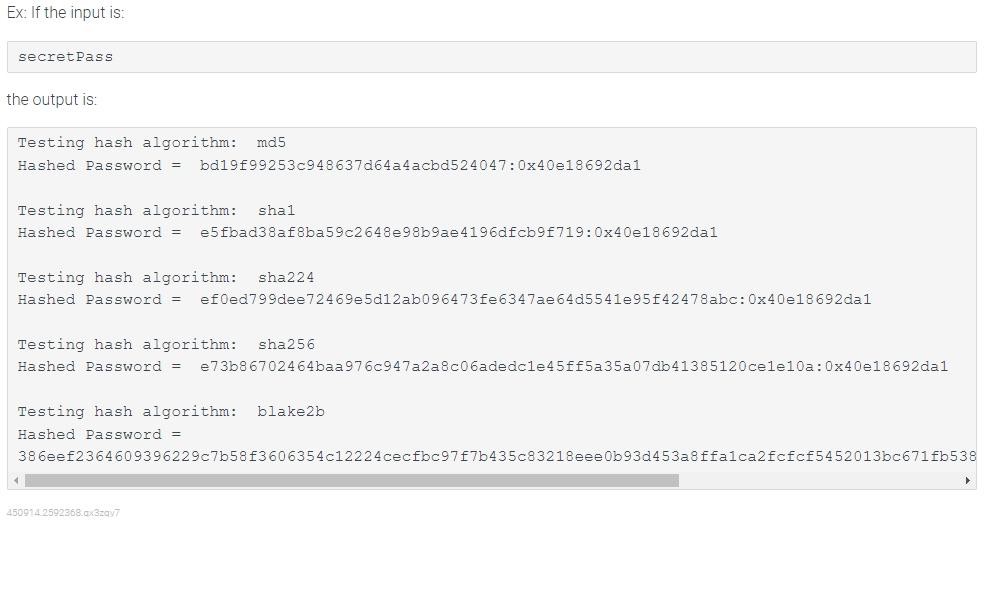Question
Given hash_function( ) defined in the default template, complete the main function that does the following tasks: Create a list called hash_list that contains the
Given hash_function( ) defined in the default template, complete the main function that does the following tasks:
Create a list called hash_list that contains the five hashing algorithm names described above.
Read from the user a password to hash.
Declare a salt variable and initialize the variable to the hex representation of 4458585599393. Hint: Use function hex().
Use a for loop to iterate over the hash_list and call the hash_function() with the hashing algorithm names in the list. Store the returned value of hash_function() in a variable and output the algorithm name used and the hashed password. Note: Output a new line after each hashed password is printed.
hash_function( ) takes three parameters: the password to be hashed, a salt containing the hex representation of a 13-digit number, and a hashing algorithm name. hash_function( ) applies a specific hashing algorithm to the combination of the password and the salt value. hash_function( ) then returns a text containing the hashed data in hex representation and the salt value.

my code is:
import hashlib
def hash_function(password, salt, al): if al == 'md5': #md5 hash = hashlib.md5(salt.encode() + password.encode()) hash.update(password.encode('utf-8')) return hash.hexdigest() + ':' + salt elif (al == 'sha1'): #sha1 hash = hashlib.sha1() hash.update(password.encode('utf-8')) return hash.hexdigest() + ':' + salt elif al == 'sha224': #sha224 hash = hashlib.sha224() hash.update(password.encode('utf-8')) return hash.hexdigest() + ':' + salt elif al == 'sha256': #sha256 hash = hashlib.sha256() hash.update(password.encode('utf-8')) return hash.hexdigest() + ':' + salt elif al == 'blake2b': #blake2b512 hash = hashlib.blake2b() hash.update(password.encode('utf-8')) return hash.hexdigest() + ':' + salt else: print("Error: No Algorithm!")
if __name__ == "__main__": hash_list = ['md5', 'shal', 'sha224', 'sha256', 'blake2b'] password = str(input()) salt = hex(78246391246824) for i in range (len(hash_list)): print("Testing hash algorithm: " + hash_list[i]) print("Hashed password = " + hash_function(password, salt, hash_list[i]) + " ")
I am getting this error:
Traceback (most recent call last): File "main.py", line 38, in
Step by Step Solution
There are 3 Steps involved in it
Step: 1

Get Instant Access to Expert-Tailored Solutions
See step-by-step solutions with expert insights and AI powered tools for academic success
Step: 2

Step: 3

Ace Your Homework with AI
Get the answers you need in no time with our AI-driven, step-by-step assistance
Get Started


